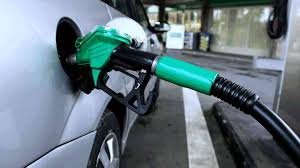The ongoing conflict between Israel and Iran could further strain Nigeria’s already fragile economy, according to analysts at Comercio Partners. In their latest macroeconomic report titled “Nigeria’s Inflation Slows in May, But Trouble May Be Ahead”, released on June 16, 2025, the analysts warned that escalating geopolitical tensions may disrupt global crude oil supplies and push up prices, with serious consequences for Nigeria.
Although Nigeria is a major oil producer, the report highlights that global price hikes may not translate into gains for the country. Since the removal of fuel subsidies, domestic pump prices are now directly tied to international oil benchmarks. This makes the country increasingly vulnerable to price volatility in the global oil market.
“Crude remains the primary input, and higher international oil prices translate into more expensive production and distribution,” the report said, noting that even the operational Dangote Refinery cannot shield Nigeria from this exposure. A projected price jump could see petrol prices rise from the current N825 per litre to as high as N1,000, potentially increasing transport costs and deepening inflationary pressures.
The economic impact could be compounded by existing challenges, including climate-related disruptions and rising insecurity across the country.
In a striking revelation, Nigeria spent N1.19 trillion on crude oil imports in the first quarter of 2025, making it the country’s third most imported item. This figure, reported by the National Bureau of Statistics (NBS), underscores a troubling dependence on foreign crude, despite Nigeria being Africa’s top oil producer. Gas oil and petrol were the only items imported in higher volumes, valued at N1.83 trillion and N1.76 trillion respectively.
This paradox stems from inconsistent supply to local refineries, pushing operators to seek more stable and cost-effective alternatives abroad. The report noted that many local players now prefer sourcing crude from the international market due to uncertainties in the domestic supply chain.
Meanwhile, oil prices have been climbing steadily. Brent crude is now trading above $74 per barrel, while Nigerian oil blends have surpassed $75. This marks an 18% recovery in prices since April, when crude dipped to $61 per barrel. With the Israel-Iran conflict in its fifth day and showing no signs of easing, analysts believe Brent futures could push toward the $80 mark if geopolitical risks escalate.
So far, the violent standoff has resulted in the deaths of at least 224 people in Iran and 24 in Israel, with continued airstrikes worsening the humanitarian crisis and deepening fears of prolonged instability in the oil-rich region.










